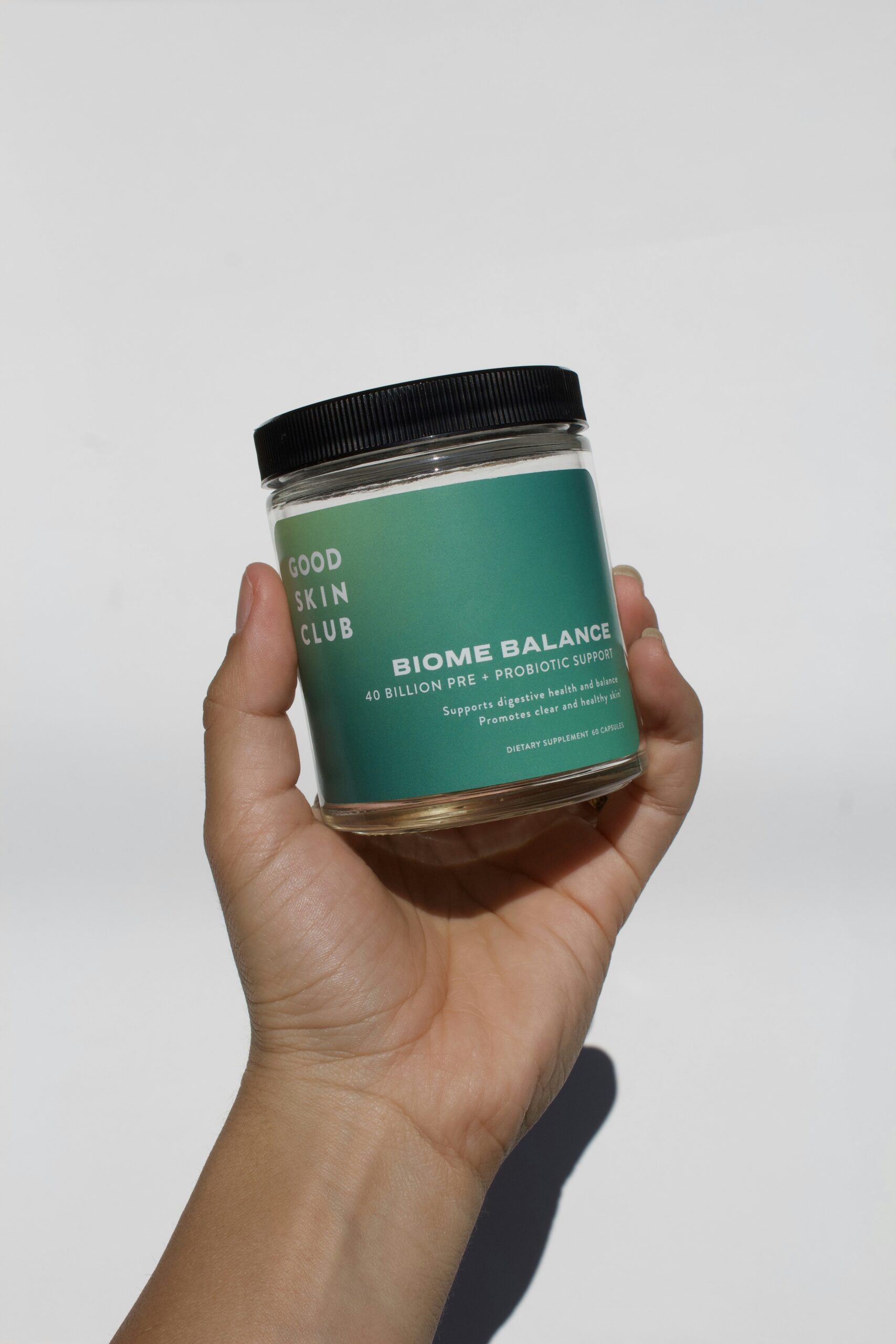Want to improve your gut health? Look no further than probiotics! These powerful microorganisms are the secret to a healthy digestive system and can work wonders for your overall well-being. In this article, we’ll explore the numerous benefits of probiotics and how they can help promote a balanced gut microbiome. From reducing inflammation to boosting immunity, incorporating probiotics into your daily routine is a simple yet effective way to optimize your health. So, if you’re ready to take your gut health to the next level, read on to discover the wonders of probiotics and how to incorporate them into your lifestyle.

What Are Probiotics?
Definition of Probiotics
Probiotics are living microorganisms that, when consumed in adequate amounts, provide health benefits for the host. These microorganisms are typically bacteria but can also include certain yeasts. They can be found naturally in some foods and can also be taken as dietary supplements. Probiotics work by restoring the natural balance of bacteria in the gut, which is essential for optimal health.
Types of Probiotics
There are different types of probiotics, each belonging to a specific strain or species of bacteria or yeast. Some common types of probiotics include Lactobacillus, Bifidobacterium, and Saccharomyces. Each type has its own unique properties and benefits. It’s important to choose a probiotic that is suited to your specific needs and health goals.
Benefits of Probiotics
Probiotics offer a wide range of health benefits. They help improve gut health, strengthen the immune system, aid in digestion, and support overall well-being. They can also help alleviate symptoms of digestive disorders such as irritable bowel syndrome (IBS) and promote a healthy weight. Additionally, probiotics have been shown to have a positive impact on mental health by reducing symptoms of anxiety and depression. Incorporating probiotics into your daily routine can greatly enhance your overall health and well-being.
Understanding Gut Health
Importance of Gut Health
Gut health plays a crucial role in our overall health and well-being. The gut, also known as the gastrointestinal tract, is responsible for digesting food, absorbing nutrients, and eliminating waste from the body. It is also home to trillions of microorganisms, including both beneficial and harmful bacteria. Maintaining a healthy balance of these microorganisms is essential for proper digestion, nutrient absorption, immune function, and even mental health.
Factors Affecting Gut Health
Several factors can impact gut health. These include diet, stress levels, medications, and lifestyle choices. A poor diet high in processed foods and lacking in fiber can disrupt the balance of gut bacteria, leading to various health issues. Stress can also have a negative impact on gut health by altering the composition of the gut microbiota. Additionally, certain medications, such as antibiotics, can cause imbalances in the gut flora. Being aware of these factors and taking steps to promote a healthy gut is essential for maintaining overall well-being.
Signs of Poor Gut Health
Poor gut health can manifest in various ways. Common symptoms of an unhealthy gut include digestive issues such as bloating, gas, diarrhea, or constipation. You may also experience frequent infections, a weakened immune system, skin problems, and even mood disorders like depression or anxiety. Paying attention to these signs can help you identify potential gut health issues and take appropriate steps to address them.
The Role of Probiotics in Gut Health
How Probiotics Affect Gut Health
Probiotics play a vital role in maintaining a healthy gut. When consumed, they help restore the balance of beneficial bacteria in the gut, which promotes optimal digestion and nutrient absorption. Probiotics also produce essential nutrients, such as vitamins B and K, and help break down dietary fibers that the body cannot digest on its own. By maintaining a diverse and well-balanced gut microbiota, probiotics contribute to overall gut health and support a strong immune system.
Improvement of Digestive System
One of the primary benefits of probiotics is their ability to improve digestive health. They can help alleviate symptoms of digestive disorders such as diarrhea, bloating, and irritable bowel syndrome (IBS). Probiotics work by enhancing the gut’s ability to break down and absorb nutrients, as well as promoting regular bowel movements. By strengthening the digestive system, probiotics help optimize nutrient absorption, promote regularity, and reduce digestive discomfort.
Maintenance of Healthy Microbiota
Probiotics also play a crucial role in maintaining a healthy gut microbiota. The gut microbiota is a diverse community of microorganisms that reside in the gastrointestinal tract. A balanced and diverse gut microbiota is essential for proper digestion, immune function, and overall health. Probiotics help ensure the presence of beneficial bacteria in the gut, creating an environment that supports optimal health and well-being.
Choosing the Right Probiotic Supplement
Selecting a Reputable Brand
When choosing a probiotic supplement, it’s important to select a reputable brand. Look for supplements that are manufactured by well-known and trusted companies. Read reviews and check for certifications, such as Good Manufacturing Practices (GMP) certification, which ensures that the supplement has been produced under strict quality control standards. Choosing a reputable brand will help ensure that you are getting a high-quality probiotic product.
Identifying the Strain and CFU
Different probiotic strains have different effects on the body. It’s essential to identify the specific strains of bacteria or yeast present in the supplement. Look for strains that have been researched and proven to provide the desired health benefits. Additionally, pay attention to the colony-forming units (CFUs) listed on the supplement label. CFUs indicate the number of viable probiotic cells present in each dose. Higher CFUs typically indicate a more potent and effective probiotic supplement.
Considering Additional Ingredients
When choosing a probiotic supplement, it’s also important to consider any additional ingredients included in the formulation. Some probiotic supplements may contain added prebiotics, which are beneficial for promoting the growth and activity of probiotics in the gut. Others may include fillers or allergenic ingredients that could have adverse effects on certain individuals. It’s advisable to read the product label carefully and consult with a healthcare professional if you have any concerns about specific ingredients.

Natural Food Sources of Probiotics
Yogurt and Fermented Foods
Yogurt is one of the most well-known sources of probiotics. It is made by fermenting milk with live bacteria cultures, typically Lactobacillus or Bifidobacterium strains. When choosing yogurt as a probiotic source, it is important to select varieties that contain live and active cultures. In addition to yogurt, other fermented foods like kefir, miso, and tempeh also contain probiotics. These foods can be easily incorporated into your diet to boost your probiotic intake naturally.
Kefir and Cultured Drinks
Kefir is a fermented milk drink that is similar to yogurt but has a thinner consistency. It is made by culturing kefir grains with milk or water, resulting in a probiotic-rich beverage. Kefir contains a wide variety of strains and a high concentration of beneficial bacteria. Other cultured drinks, such as kombucha and kvass, also provide probiotic benefits. Adding kefir or other cultured drinks to your daily routine can be a refreshing way to improve your gut health.
Sauerkraut and Kimchi
Sauerkraut and kimchi are examples of probiotic-rich foods that are traditionally made through the process of lacto-fermentation. These fermented vegetables are packed with beneficial bacteria and can be a delicious addition to your meals. Sauerkraut is made from fermented cabbage, while kimchi is a spicy Korean dish made from fermented vegetables, usually cabbage and radishes. Incorporating sauerkraut or kimchi into your diet can provide a natural source of probiotics and enhance the flavor of your favorite dishes.
Prebiotics: The Companion for Probiotics
Definition and Function of Prebiotics
Prebiotics are non-digestible fibers that serve as food for beneficial bacteria in the gut. While probiotics introduce beneficial bacteria into the gut, prebiotics act as nourishment to support their growth and activity. By promoting the growth of beneficial bacteria, prebiotics help maintain a healthy gut microbiota and enhance the effectiveness of probiotics. In short, prebiotics and probiotics work together synergistically to promote optimal gut health.
Foods Rich in Prebiotics
Certain foods are naturally rich in prebiotics and can be incorporated into your diet to support the growth of beneficial bacteria. Some examples of prebiotic-rich foods include garlic, onions, leeks, bananas, asparagus, and whole grains. Including these foods in your meals can provide a source of nourishment for the probiotics in your gut and help maintain a healthy balance of gut bacteria.
Importance of Combining Prebiotics and Probiotics
Combining prebiotics and probiotics can enhance the overall effectiveness of both. By providing nourishment to beneficial bacteria, prebiotics create an environment that allows probiotics to thrive and exert their health benefits. The combination of prebiotics and probiotics promotes a healthy gut microbiota, supports digestion, enhances nutrient absorption, and strengthens the immune system. Incorporating both prebiotic-rich foods and probiotic supplements into your diet can help optimize gut health and overall well-being.
How to Incorporate Probiotics into Your Diet
Consuming Probiotic-Rich Foods
Incorporating probiotic-rich foods into your diet is an excellent way to improve your gut health naturally. Start by adding yogurt with live cultures, kefir, or cultured drinks to your daily routine. You can also include fermented foods like sauerkraut, kimchi, and miso in your meals. Be mindful of the quality and freshness of these foods to ensure maximum probiotic content. Gradually increase your consumption of these probiotic-rich foods to allow your body to adjust and experience the benefits.
Taking Probiotic Supplements
Probiotic supplements offer a convenient way to ensure an adequate intake of beneficial bacteria. When choosing a probiotic supplement, consider the specific strain, CFU count, and additional ingredients. Follow the recommended dosage instructions provided by the manufacturer. It’s advisable to take the probiotic supplement with a meal to optimize absorption. Remember to store the supplements properly according to the instructions, as exposure to heat or moisture can affect their potency.
Creating Homemade Fermented Products
If you enjoy exploring in the kitchen, you can try making your own fermented products at home. This allows you to have full control over the quality and ingredients. You can make yogurt, kefir, sauerkraut, kimchi, or other fermented foods using simple recipes and starter cultures. Homemade fermented products can be a fun and rewarding way to incorporate probiotics into your diet while experimenting with different flavors and variations.
Understanding Potential Side Effects
Temporary Gastrointestinal Symptoms
When starting to incorporate probiotics into your diet, some individuals may experience temporary gastrointestinal symptoms. These can include gas, bloating, diarrhea, or constipation. These symptoms usually subside as your body adjusts to the introduction of probiotics. If the symptoms persist or are severe, it is advisable to consult with a healthcare professional. They can provide guidance and determine if any adjustments need to be made to your probiotic regimen.
Allergic Reactions
In rare cases, individuals may experience allergic reactions to certain strains of probiotics or other ingredients used in probiotic supplements or foods. Symptoms of an allergic reaction can range from mild to severe and may include itching, rash, swelling, or difficulty breathing. If you suspect an allergic reaction, discontinue use immediately and seek medical attention. It’s crucial to read product labels carefully and consult with a healthcare professional if you have known allergies or sensitivities.
Interactions with Medications
Probiotics may interact with certain medications, particularly those that suppress the immune system or those used for treating serious medical conditions. It is essential to inform your healthcare provider about any probiotic supplements you are taking, especially if you have any underlying health conditions or are taking prescription medications. They can provide guidance on potential interactions and help you make informed decisions about incorporating probiotics into your health regimen.
Tips for Successful Probiotic Use
Starting with Low Dosages
When starting to take probiotics, it is generally recommended to start with low dosages and gradually increase over time. This allows your body to adjust to the introduction of new bacteria and reduces the risk of experiencing severe gastrointestinal symptoms. Starting with a lower dosage ensures a gentle transition and gives you the opportunity to monitor how your body responds to the probiotics.
Gradually Increasing Dosages
After the initial adjustment period, gradually increasing the dosage of probiotics can help optimize the benefits. This allows your body to adapt to higher levels of beneficial bacteria without overwhelming the system. It’s important to pay attention to any changes or symptoms you may experience during the dose increase and adjust accordingly. Consulting with a healthcare professional can provide personalized guidance based on your specific needs and goals.
Monitoring your Body’s Response
As you incorporate probiotics into your routine, it’s essential to pay attention to how your body responds. Keep track of any changes in digestion, energy levels, mood, or overall well-being. By monitoring your body’s response, you can tailor your probiotic regimen to best suit your needs. If you notice any persistent or concerning symptoms, it is advisable to consult with a healthcare professional for further evaluation.
Consulting a Healthcare Professional
When to Consult
While probiotics are generally safe for most individuals, there are cases where it is advisable to consult with a healthcare professional. If you have any underlying health conditions, are pregnant or breastfeeding, or are taking prescription medications, it is important to seek guidance before starting probiotics. A healthcare professional can provide personalized advice based on your medical history, current health status, and specific needs.
Guidance on Probiotic Use
A healthcare professional can provide valuable guidance on probiotic use based on your individual needs and health goals. They can recommend specific strains or species of probiotics that are most suitable for your condition. They can also provide information on dosages, potential interactions, and duration of use. Consulting with a healthcare professional ensures that you are taking the right probiotics in a manner that maximizes their beneficial effects.
Choosing the Right Probiotic for Your Needs
With the wide variety of probiotic supplements available, it can be overwhelming to choose the right one. Working with a healthcare professional can help you navigate through the options and select a probiotic that best suits your needs. They can guide you in determining the specific strains, CFU count, and additional ingredients that align with your health goals and dietary preferences. Their expertise will help ensure that you are making an informed decision and maximizing the benefits of probiotic use.
In conclusion, probiotics play a vital role in improving gut health. They offer a range of benefits, including improved digestion, maintenance of a healthy gut microbiota, and support for the immune system. Incorporating probiotics into your daily routine can be done through consuming probiotic-rich foods, taking probiotic supplements, or creating homemade fermented products. Prebiotics, which provide nourishment for beneficial bacteria, can also be combined with probiotics for optimal gut health. As with any dietary change, it’s important to start with low dosages, gradually increase as your body adjusts, and monitor your body’s response. Consulting with a healthcare professional is advisable, especially if you have underlying health conditions or are taking medications. By choosing the right probiotic and following these guidelines, you can improve your gut health and enhance your overall well-being.






